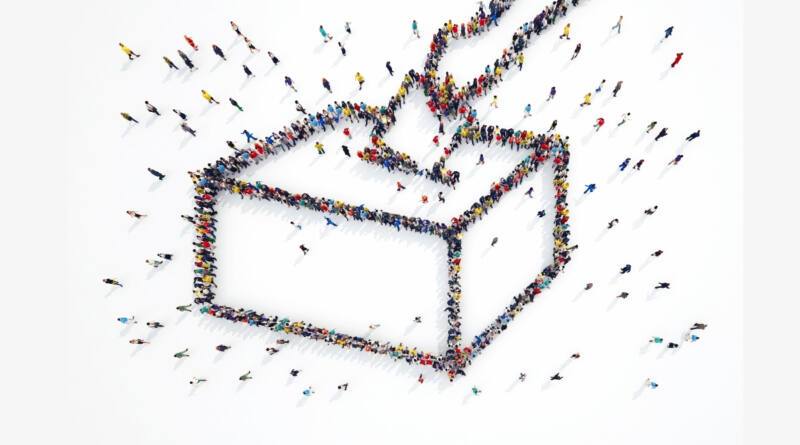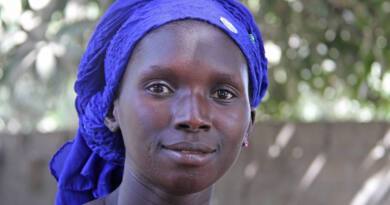Lok Sabha Elections Simplified: First-Time Voters, All You Need To Know
India’s 2024 Lok Sabha Elections: A Guide for First-Time Voters
Understanding the Electoral Process in India
The largest democracy in the world, India, is preparing for the Lok Sabha elections of 2024, when over 1.8 million first-time voters between the ages of 18 and 19 will have a significant impact on the political climate of the nation. These young voters, who turned 18 on or before January 1st of the election year, will be able to cast ballots until April, according to a statement from the Election Commission (EC). Voting for the 543 Lok Sabha seats will take place in seven stages between April 19 and June 1, with June 4 being the date of the vote count.
Procedure for First-Time Voters
Registration: Registering as a voter is the first step in the election process for those who are voting for the first time. They must do this by going to the Election Commission of India’s (ECI) official website and completing Form 6 online via the State Electoral Service portal. As an alternative, they can register offline by sending an application to the deputy electoral registration officer or the voting registration officer.
Voters must confirm that their names appear correctly on the electoral roll of their constituency after registering. They can check this information with their District Electoral Registration Officer or on the ECI website. Upon confirmation of their names, they need to choose their preferred polling station for voting.
Procedure for Voting on Election Day
Voters are required to appear at their assigned polling places on election day and provide identification to poll workers. After that, the first electoral official would permanently ink mark their left index finger. Voters then have to go see another election official, who will record their presence in the voter registration.
Voters using the Electronic Voting Machine (EVM) must press the blue candidate button located on the ballot unit, opposite the name and symbol of their choice. A red light appears next to the chosen candidate’s name and symbol, indicating the registration of the vote. Once a buzzer sounds, the voter will receive a receipt confirming their vote.
Recent Data and Trends in Indian Elections
Recent election data and trends in India over 900 million voters were eligible to vote in the 2019 Lok Sabha elections, and the Association for Democratic Reforms (ADR), a nonpartisan group fighting for political and electoral reforms in India, reports that voter turnout was roughly 67.4%. It’s important to remember, though, that voter turnout differs in India’s many states and areas.
Recent elections have shown a trend of young voters becoming more involved in the electoral process. Young people, who make up a sizable section of the vote, are having an increasingly big say in how elections turn out.
It is crucial to monitor the 18–19 age range in the 2024 Lok Sabha elections, given the predicted continuation of this trend. In conclusion, first-time voters have a chance to exercise their democratic rights and influence the course of the nation during the 2024 Lok Sabha elections. These young people can participate in the political process and help create a better India for themselves and future generations by registering to vote.
Now let us have a look at the 2024 global elections.
In the upcoming year, billions of people, or about half of the world’s population, will vote in municipal, state, federal, and presidential elections. While certain races will only serve to solidify established regimes, others provide an opportunity for fledgling democracies to gain traction. However, any one of them could contribute to increased geopolitical tensions in a time of political unrest.
More than 80 countries—from Sudan to Mexico, South Africa to Russia, and Venezuela to South Africa—are preparing for or have already started holding elections. The results could have a huge impact on international relations, human rights, and economic stability.
However, it is already evident that there are numerous risks to democracy, and not only in nations with a troubled electoral past.
Even strong democracies are in trouble this year due to voter indifference, attempts to discredit opposition organisations, and the proliferation of sophisticated disinformation tactics.
The following is a list of some of the most important ones to watch.
Senegal
March 23–April 6
The nation plunged into anarchy when the president attempted to delay the vote and then changed his mind. In addition, he freed the front-runner of the opposition party from prison, ensuring a thrilling and quick race.
Slovakia
March 23-April 6
This is a crucial presidential vote because the prime minister and the president currently come from different political backgrounds.
South Korea
April 10
Elections to the legislature, which many interpret as a midterm vote on the president in office, occur.
India
April 19-June 1
Prime Minister Narendra Modi is running for a third term in a national election. It is regarded as the largest logistics exercise ever conducted.
Panama
May 5
The election’s major topics are probably going to be the Panama Canal, a copper mine that is the target of widespread demonstrations, and environmental concerns.
Chad
May 6 and June 22
After his father died in combat in 2021, Mahamat Idriss Déby Itno usurped power. This will be the first presidential election since then.
Lithuania
May 12
the first round of the presidential election, which is anticipated to go to a two-round contest with the incumbent winning a second term.
Dominican Republic
May 19
President Luis Abinader briefly closed the border and stopped granting visas to citizens of Haiti. If he wins, he’ll probably stick to his guns over Haiti as gang violence terrorises that nation.
South Africa
May 29
In this election, the ruling African National Congress party may lose its legislative majority for the first time since apartheid ended thirty years ago.
Mexico
June 2
An election that is expected to be the biggest in Mexico’s recent history, as well as possibly the most violent. Additionally, Mexico will choose a female president for the first time.
European Union
June 6-9
An election for the 720-seat European Parliament is held over the course of four days in 27 nations and is widely regarded as a significant indicator of political trends throughout Europe.
Rwanda
July 15
After guiding Rwanda out of the genocide, President Paul Kagame has ruled the nation like a titan ever since. After winning three elections with over 90% of the vote, he is vying for a fourth term.
Venezuela
July 28
With the leading opposition candidate barred from competing, it seems unlikely that the election will be free and fair. The elections come after talks with the US to return the nation to democracy.
Austria
Date To Be Declared
Many will watch the lower house parliamentary elections as a barometer of the far-right Freedom Party’s strength.
USA
November 5
President Biden and former President Donald J. Trump square off again, adding another degree of unpredictability to the world political scene.
Sri Lanka
Most likely November
The first presidential election took place after a public uprising in 2022 overthrew the government.
United Kingdom
Expected late in 2024
According to polls, the 14-year-old Conservative Party may be headed for a big defeat versus the left-leaning Labour Party.
Previous Elections
March 17, Russia
It was almost certain that Vladimir V. Putin would emerge victorious. However, the fact that it was the first presidential election after the invasion of Ukraine added even more significance. And after the carefully choreographed vote, Mr. Putin had successfully won a fifth term.
Iran on March 1st
Iranian officials urged citizens to cast ballots in the country’s first general election since a nationwide revolt in 2022. It did not occur. Many abstained from voting in what was perceived as a protest; in Tehran, turnout was predicted to be as low as 11%.




